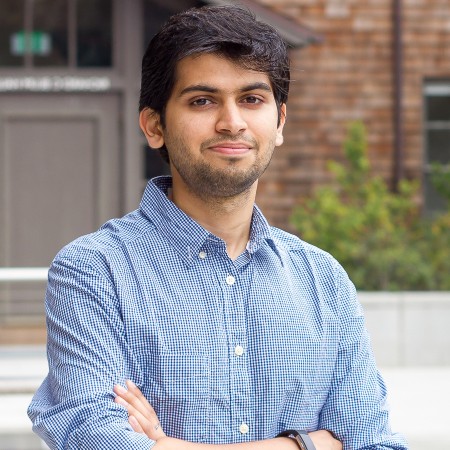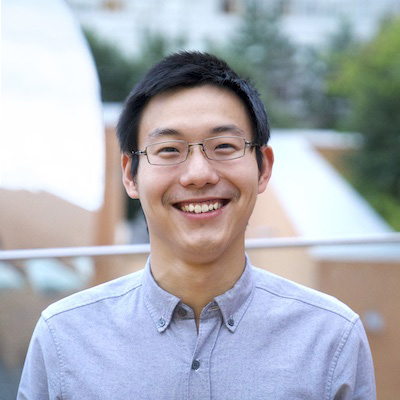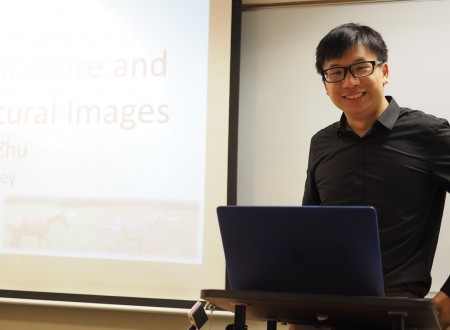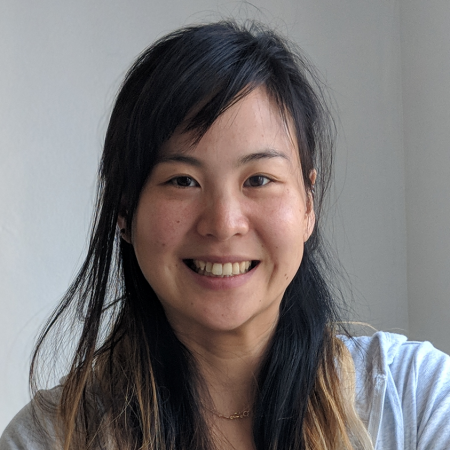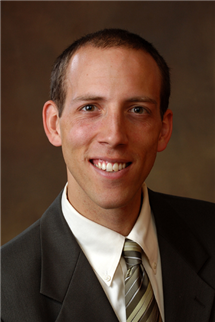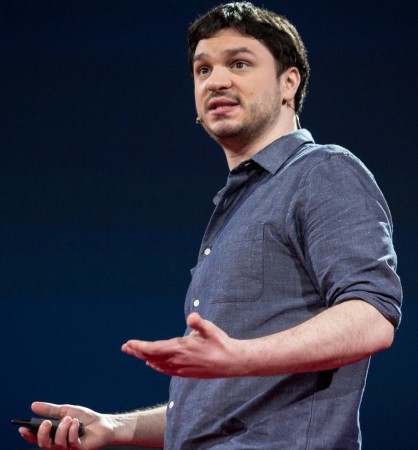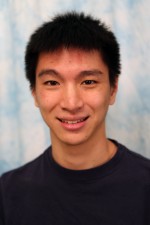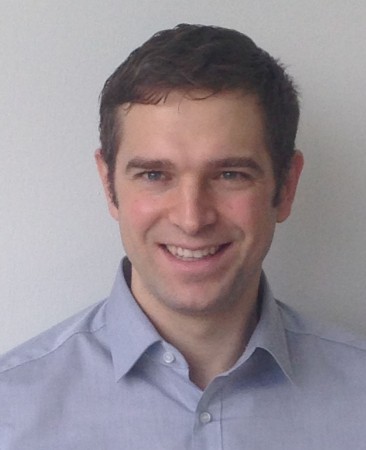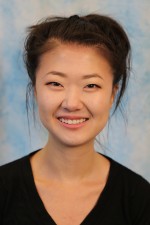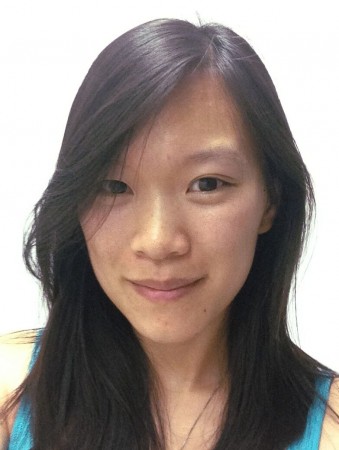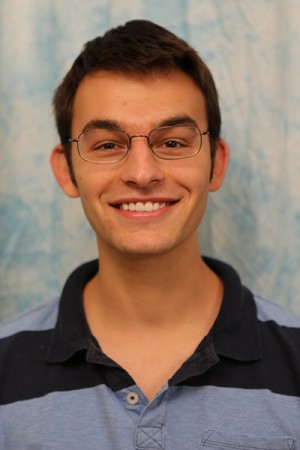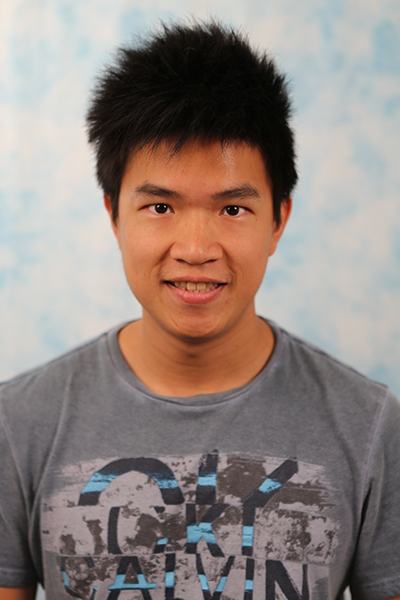Self-Directed Learning
Abstract: Generalization, i.e., the ability to adapt to novel scenarios, is the hallmark of human intelligence. While we have systems that excel at recognizing objects, cleaning floors, playing complex games and occasionally beating humans, they are incredibly specific in that they only perform the tasks they are trained for and are miserable at generalization. In [...]
Learning to see the physical world
Abstract: Human intelligence is beyond pattern recognition. From a single image, we're able to explain what we see, reconstruct the scene in 3D, predict what's going to happen, and plan our actions accordingly. In this talk, I will present our recent work on physical scene understanding---building versatile, data-efficient, and generalizable machines that learn to see, reason about, and interact [...]
Learning to Synthesize Images
Abstract: People are avid consumers of visual content. Every day, we watch videos, play games, and share photos on social media. However, there is an asymmetry – while everybody is able to consume visual content, only a chosen few (e.g., painters, sculptors, film directors) are talented enough to express themselves visually. For example, in modern [...]
Carnegie Mellon University
Direct Drive Hands: Force-Motion Transparency in Gripper Design
Abstract: The Direct Drive Hand (DDHand) project is exploring a new design philosophy for grippers. The conventional approach is to prioritize clamping force, leading to high gear ratios, slow motion, and poor transmission of force/motion signals. Instead, the DDHand prioritizes transparency: we view the gripper as a signal transmission channel, and seek high-bandwidth, high-fidelity transmission [...]
Faculty Candidate: Angjoo Kanazawa
Title: Perceiving Humans in the 3D World Abstract: Since the dawn of civilization, we have functioned in a social environment where we spend our days interacting with other humans. As we approach a society where intelligent systems and humans coexist, these systems must also interpret and interact with humans that reside in the 3D world. [...]
Three surprises and a story of prison education
Abstract: I will talk about three results that surprised me. First, I will show that the free configuration space of an elastic wire is path-connected, a result that makes easy a manipulation planning problem that was thought to be hard. Second, I will show a linear relationship between stimulation parameters, skin impedance, and sensation intensity [...]
Augmenting Imagination: Capturing, Modeling, and Exploring the World Through Video
Abstract: Cameras offer a rich and ubiquitous source of data about the world around us, providing many opportunities to explore new computational approaches to real-world problems. In this talk, I will show how insights from art, science, and engineering can help us connect progress in visual computing with typically non-visual problems in other domains, allowing [...]
Carnegie Mellon University
Terrain Relative Navigation for Lunar Polar Roving: Exploiting Geometry, Shadows, and Planning
Abstract: Water ice at the lunar poles could be the most valuable resource beyond planet Earth. However, that value is not foregone, and can only be determined by rovers that evaluate the distributions of abundance, concentration, and characteristics of this ice. The near-term explorations will be solar and unlikely to endure night, and hence are [...]
AI-Driven Videos Synthesis and its Implications
Abstract: In this talk, I will present my research vision in how to create photo-realistic digital replica of the real world, and how to make holograms become a reality. Eventually, I would like to see photos and videos evolve to become interactive, holographic content indistinguishable from the real world. Imagine taking such 3D photos to [...]
Carnegie Mellon University
Toward intuitive human controlled MAVs: motion primitives based teleoperation
Abstract: Humans excel at composing high-level plans that achieve a complex, multimodal objective; however, achieving proficiency in teleoperating multi-rotor aerial vehicles (MAVs) in unstructured environments with stability and safety requires significant skill and training. In this talk, we present human-in-the-loop control of a MAV via teleoperation using motion primitives that addresses these concerns. We show [...]
Understanding 3D Scans
Abstract: With recent developments in both commodity range sensors as well as mixed reality devices, capturing and creating 3D models of the world around us has become increasingly important. As the world around us lives in a three-dimensional space, such 3D models will not only facilitate capture and display for content creation but also provide [...]
Robots Learning from Human Teachers
Abstract: In this talk I will cover some of the recent work out of the Socially Intelligent Machines Lab at UT Austin (http://sim.ece.utexas.edu/research.html). The vision of our research is to enable robots to function in dynamic human environments by allowing them to flexibly adapt their skill set via learning interactions with end-users. We explore the ways in which [...]
Carnegie Mellon University
Improving Multirotor Trajectory Tracking Performance using Learned Dynamics Models
Abstract: Multirotors and other aerial vehicles have recently seen a surge in popularity, partly due to a rise in industrial applications such as inspection, surveillance, exploration, package delivery, cinematography, and others. Crucial to multirotors' successes in these applications, and enabling their suitability for other applications, is the ability to accurately track trajectories at high speed [...]
Carnegie Mellon University
Learning to Align without Geometric Supervision
Abstract: Extracting geometric information from image data is a highly nonlinear problem that exhibits in a number of visual recognition tasks such as object localization, facial landmark tracking and human pose estimation. Successful alignment across image data often serves as a crucial component in making them possible. In this talk, I will present how one [...]
